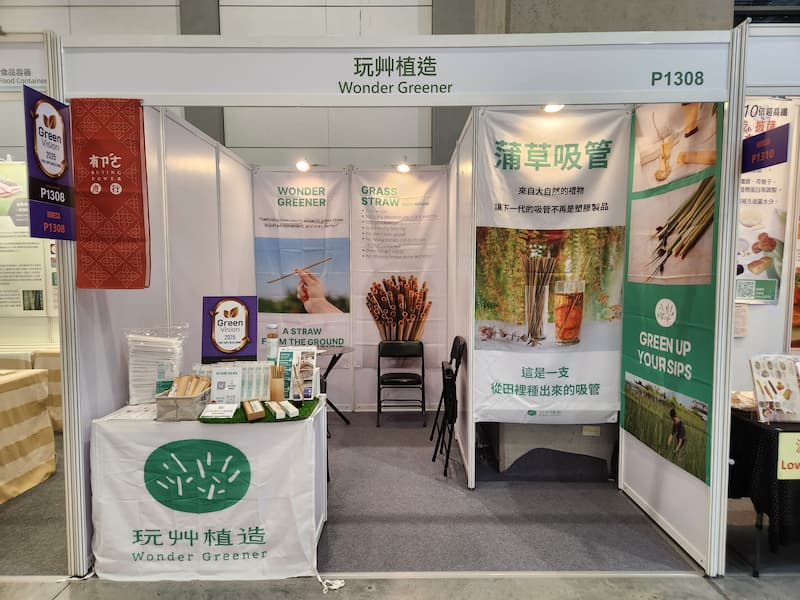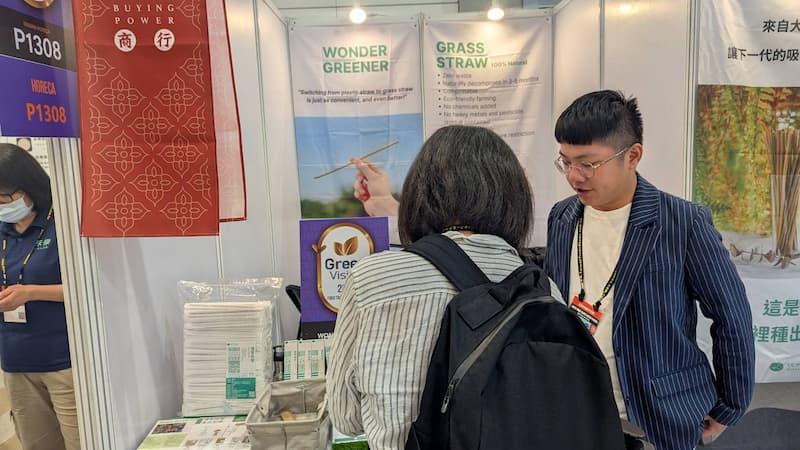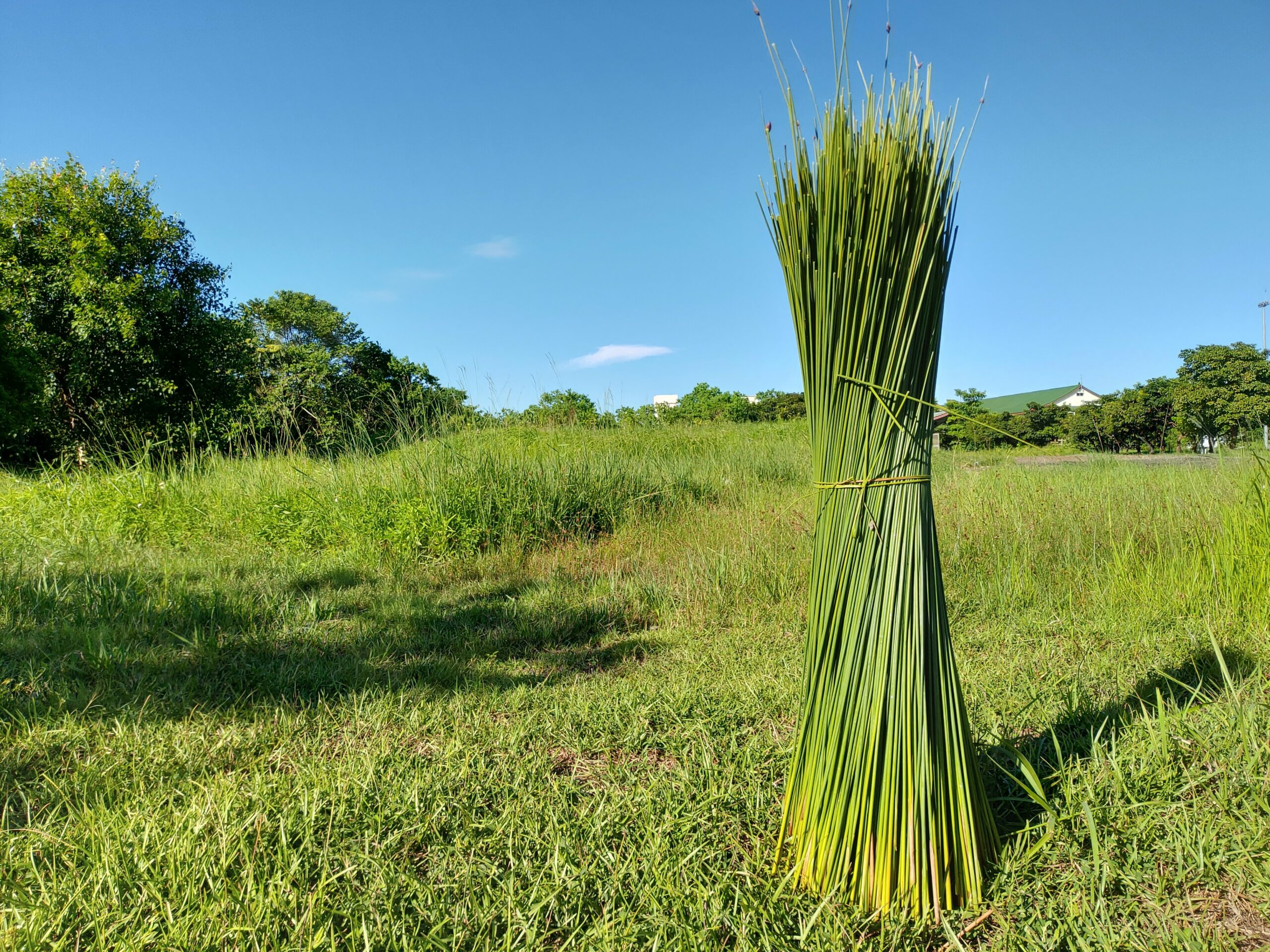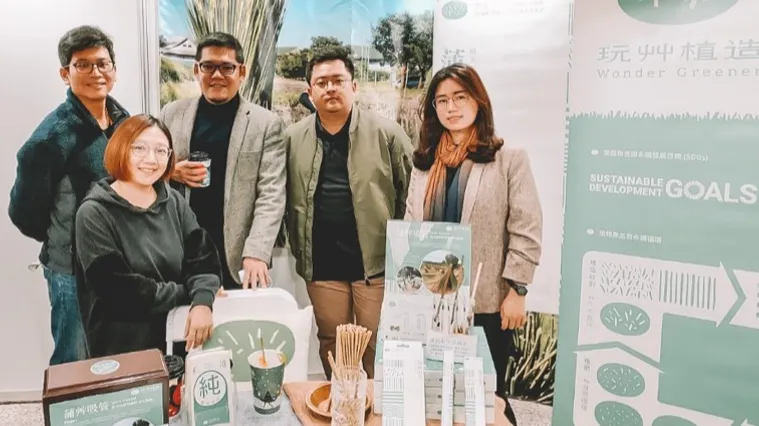In 2025, for hotels, restaurants, cafés, and tourism operators, it’s not just a new year—it marks the official start of a new era in plastic reduction. With the full enforcement of the “Single-Use Hospitality Item Restrictions” regulation, businesses are actively seeking sustainable solutions that both comply with policies and enhance their brand image. At the recent 2025 Taiwan HORECA (Taiwan International Hotel, Restaurant & Catering Show), we keenly observed the urgent market demand for eco-friendly amenities. In fact, many operators are already familiar with Grass Straws, reflecting the industry’s growing acceptance of innovative, environmentally friendly single-use products amid the dual pressures of regulation and consumer expectations.

2025 New Regulation: Single-Use Amenity Restrictions Now Fully Enforced in Hospitality!
To support plastic reduction and sustainability goals, the Ministry of Environment has fully implemented the “Restrictions on the Use of Single-Use Hospitality Items” regulation. This new rule directly impacts hotels, guesthouses, and other hospitality operators.
Key Points of the Regulation and Current Implementation Status:
- Scope of Restriction: Primarily targets the hospitality industry.
- Restricted Items: Includes six categories of single-use products such as small-packaged liquid toiletries (shampoo, body wash), toothbrush and toothpaste sets, combs, razors, shower caps, and disposable slippers.
- Implementation Status
- The first phase was implemented on July 1, 2023: businesses are prohibited from proactively providing these single-use items.
- The second phase was fully implemented on January 1, 2025: businesses are completely prohibited from providing these single-use items and are encouraged to promote customers bringing their own.
- Penalties: Violators will be fined in accordance with the Waste Disposal Act.
It is worth noting that although straws are not explicitly listed among the items covered by the “Single-Use Hospitality Item Restrictions,” many hotels, restaurants, and hospitality operators have begun to comprehensively review and reduce their use of various single-use consumables. This shift is driven by the overall plastic reduction spirit promoted by the regulations and changing consumer perceptions toward single-use products. Even without an explicit ban, many operators prefer to avoid using single-use items perceived as environmentally unfriendly to protect their brand image. This means businesses must fundamentally adjust their green procurement strategies and seek out more eco-friendly alternatives.
Grass Straws: Redefining Single-Use with Eco-Friendly Innovation
As businesses actively seek sustainable solutions, Grass Straws have demonstrated their unique value. They not only align with eco-friendly principles but also successfully challenge the traditional notion that “single-use means not environmentally friendly.”
Grass Straws are made from natural agricultural resources—the stems of the reed plant. Their cultivation and processing are highly environmentally friendly, and after use, they naturally decompose back into the earth with zero environmental burden. This perfectly aligns with the concept of a circular economy. Unlike plastic straws that are hard to break down, grass straws avoid the issues of paper straws becoming soggy or stainless steel straws requiring repeated cleaning and maintenance.
This natural straw has also been awarded Taiwan’s Green Mark, certifying that its raw materials and production processes meet high environmental standards. For businesses, choosing Grass Straws not only complies with green procurement regulations but also offers an innovative solution that balances convenience with environmental sustainability. It embodies a positive cycle of “the more you use, the better it is for the planet”, because each additional straw used encourages more reed planting and carbon reduction benefits.
Industry Leaders: Hotels and Brands Embrace Grass Straws for Sustainability

At the exhibition, we observed growing interest in Grass Straws among foodservice and hospitality businesses, especially hotel operators. Many industry pioneers have already included Grass Straws in their eco-friendly hotel amenity lists, demonstrating active commitments to ESG practices:
- Provintia Hotel: As a forward-thinking hotel, they have directly included Grass Straws in their guest room amenities, offering guests a sustainable stay experience.
- Palais de Chine & Grand Hilai Sun Moon Lake: These two well-known hotels have also chosen to use Grass Straws in their restaurants, integrating green dining concepts into everyday service to enhance dining quality and strengthen their brand’s sustainability image.
- Taiwan High Speed Rail: Starting in 2024, the High-Speed Rail has introduced Grass Straws onboard its trains, extending plastic reduction efforts to public transportation and delivering an environmental message to a wide range of passengers.
These cases demonstrate that Grass Straws are not only a response to policy but also a proactive choice by businesses to enhance their brand image, fulfill social responsibility, and lead the sustainability trend.
Grass Straws: The Sustainable Choice for Hotels and Restaurants
From the regulatory changes on single-use hospitality items starting in 2025 to the growing market emphasis on plastic reduction and sustainability, B2B operators are facing a pivotal transformation opportunity. Grass Straws, with their unique natural and biodegradable properties and Taiwan’s Green Mark certification, offer a practical eco-friendly solution that aligns with policy goals while helping to enhance brand value and optimize operations. Choosing Grass Straws supports your company’s ESG commitments and enables you to join consumers in creating a greener, more sustainable future.
The Sustainable Choice for Hotels and Restaurants!
Grass Straws, with their unique natural and biodegradable qualities and certification from Taiwan’s Green Mark.
Offer a practical eco-friendly solution that aligns with policy goals while helping to enhance brand value and optimize operations.


